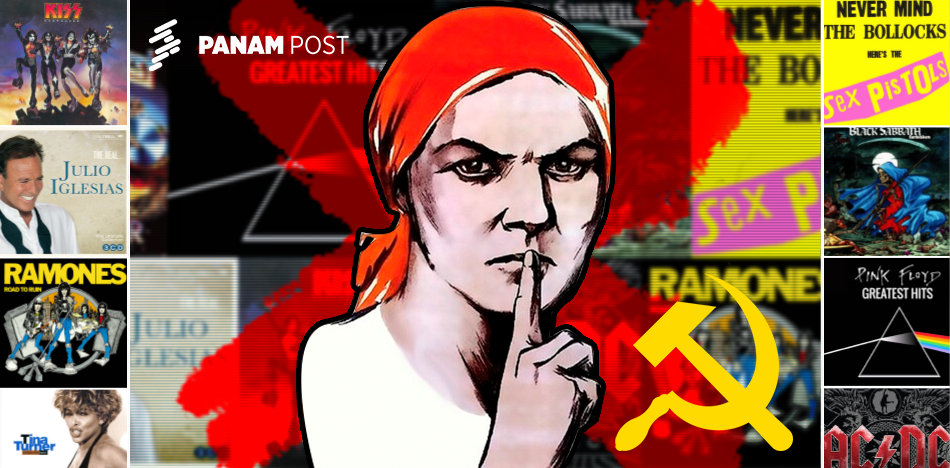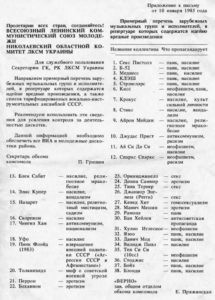
Spanish – The regime that followed the butcher Joseph Stalin in the Soviet Union, who died in 1953, may not have had the genocides of the early years of the regime. However, the idea of openness in the area of individual freedoms that many historians emphasize is very much a fallacy. Even in the last decade of its existence, the USSR was devoted to banning and regulating every aspect of Russian life, including the music they listened to.
Following the recent death of guitarist Eddie Van Halen, the media paid him the tribute he deserves and remembered several interesting chapters of his life. To have recorded Beat It’s solo with Michael Jackson in a covert way is, without a doubt, one of the most amusing. His physical demise, as it usually happens, prompted the press to put the spotlight on his career. Unfortunately, progressive communicators, who recognized him as one of the best guitarists in history, left out a memory worth mentioning: his band, Van Halen, was banned by the Soviet dictatorship. In fact, to acquire a record of the band was impossible and to possess it, a crime. For the regime, Van Halen was a spokesman for “anti-communist propaganda.”
The bureaucrats of the dictatorship had probably reinterpreted Marx who, before the existence of rock, claimed that religion was harmful because it was “the opium of the masses” since it lulled the proletarians to sleep and prevented them from seeing its ignominy. Did music have that effect during the eighties? Or perhaps there was an explicit fear that youth might find in modern music a vehicle for expressing discontent.
In any case, punk was the preferred genre of the communist censors: the Sex Pistols, Ramones, and Madness were considered subversive material. The curious thing is that among the list of reasons, the KGB recognized that punk, by the mere fact of being punk, was already prohibited. B-52 appears among the banned bands. Yes, because of punk and because of violence. It is likely that the intelligence agent in charge of making the report had not even listened to the record. It doesn’t make sense. In short, anecdotes of communism.
But “violence” was not the only thing that worried the regime. The beautiful Tina Turner and Donna Summer also adorned the list of artists banned by communism. The subject of What’s Love Got to Do with It was not circulated in the Soviet Union at the height of her career. The justification for the censorship list had only one word: “sex.” A similar explanation appeared in the locker of the brunette immortalized by Hot Stuff: “eroticism.”
The document, which became available with the fall of the regime, is not to be missed.
AC/DC: “neo-fascism,” Scorpions and Iron Maiden: “violence,” Pink Floyd: “interference in the affairs of the Soviet Union,” Judas Priest: “anti-communism,” Kiss: “nationalism.” No one was spared. But the spotlight was undoubtedly on the Spanish singer Julio Iglesias, who was censored for being “neofascist.”
The music and the different artistic manifestations are usually controlled and regulated by all the authoritarian processes. The dictatorships in Latin America, which justified their existence in the fight against communism, to a lesser extent, also did similar things.
Interestingly, political models that accept diversity and criticism achieve more solid institutions than experiments based on the iron fist. The liberal and republican democracies, from which all these artists were born and censored under real socialism, are still in force. The USSR is history, even if a few outdated people still invoke its failed and authoritarian model.
Will progressivism, which boasts of culture and at the same time continues to look fondly at the Soviet experience, give any explanation?
 Versión Español
Versión Español














